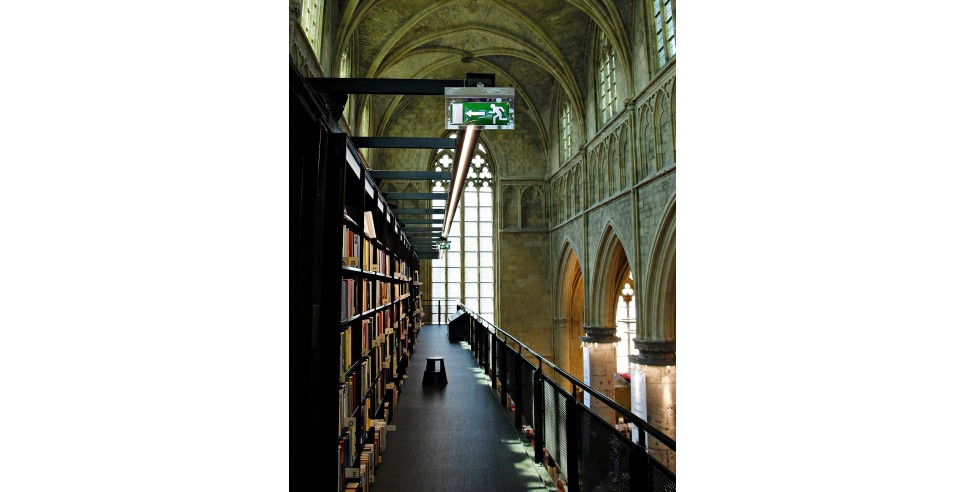
There is a spreading mood of gloom in various quarters these days about our growing environmental crisis. I call it the “doomsday caucus.”
To be clear, this is not just another crackpot crowd. It includes a significant number of the world’s leading scientists, as well as many mainstream environmental experts, professional writers, political activists, and many others who have given up hope that there can be any technological, economic, or political fixes for global warming and our ecological “overshoot” as a species. To these pessimists, the apocalypse is already baked in. Anything we do now is too little, too late. Their dark vision is, unfortunately, fueled by an ever-increasing body of alarming evidence.
One of the most eloquent representatives of the doomsday caucus is the renowned teacher and founder of a well-known Buddhist Center in Massachusetts, Catherine Ingram. In a lengthy new article on “Facing Extinction,” Ingram writes that she has long thought our species might be doomed, but now sees it as “highly probable.” Most people, she says, are “oblivious to the coming catastrophes.” Quoting Buddha, she tells us that we are “as children, playing with their toys in a house on fire.” She recites some of the most disturbing evidence and concludes that there is no way to prevent a cataclysm. “I offer no hope or solutions…only companionship and empathy.” She stresses the need for courage and resignation. Don’t waste your time with blame or reproach. Just grieve and enjoy the time that is left to us.
Ingram also disparages “the spiritual opium of hope.” Hope is OK when something can be changed, but, in this dark era, hope is at best only a soothing balm, a pain killer, an anti-depressant. Hope itself is hopeless. Give up the fight, Ingram tells us. Just go out and enjoy “walking, dancing, swimming.” Spend your remaining time with love in your heart.
Somewhat less apocalyptic but equally fatalistic about the environmental crisis is the well-known British sustainability expert, Professor Jem Bendell at the University of Cumbria. His lengthy new paper, “Deep Adaptation: A Map for Navigating Climate Tragedy,” sees disruptive climate impacts as “inevitable”. There will be severe malnutrition, starvation, disease epidemics, civil conflict, and war, he tells us. All we can do now is try to cope with these life-threatening challenges as best we can. Bendell’s recipe for “deep adaptation” includes three “Rs” – resilience, relinquishment, and restoration. Resilience means preparing communities everywhere to cope with severe environmental traumas, both physically and psychologically. Relinquishment means giving up everything from our traditional economic growth model to abandoning coastal areas that may very soon become uninhabitable. Restoration “asks us” what can we bring back in the way of an older, simpler, and more sustainable ways of living? (I would argue that there should also be a fourth “R” – refuge for the climate refugees that could soon number in the tens of millions.) Overall, it’s a very modest prescription, with relatively low expectations.
I believe that defeatism in the face of our global life-and-death crisis is a classic example of a self-fulfilling prophesy. There is a great deal more that could be done to mitigate the potential damage and prevent a full-scale Armageddon. I believe that doing everything we can to deal with the crisis is much better than doing nothing. I much prefer the risk of failure to the certainty of failure.
At the root of all this pessimism, I believe, is despair over our politics and our capacity as humans to affect large-scale social change, not our technical means for doing so; the problem is us -- human nature and our vested economic and political interests.
I have a very different take on the matter. There is a categorical difference between passive hope and active hope. On the one hand, there is hope that is peddled (sometimes cynically) by politicians who know there is in fact little chance of success without major structural reforms. Passive hope temporarily mitigates despair and wins votes. Then there is “active hope” – hope that catalyzes, energizes, and undergirds remedial efforts. It is active hope that rallies people and mobilizes support for collective action.
It was active hope that sustained William Wilberforce through his 20-year struggle, at first very much alone and in a hostile political environment, to get the British Parliament finally to abolish the slave trade in the early nineteenth century. It was active hope that motivated Winston Churchill, standing almost alone as the wartime British Prime Minister in 1940, to resist Hitler and the Nazis at a time when many of his colleagues were pushing for a “peaceful resolution” (a surrender). Likewise, Martin Luther King had an ambitious “dream” long before his famous speech, a dream that inspired a growing grass-roots reform movement in the 1960s even in the face of bloody repression and an implacable southern filibuster against civil rights legislation in the U.S. Congress. These and other inspiring leaders were able to turn hopelessness into active hope, a hope that was empowering and that ultimately triumphed.
We need a more hopeful, inspiring vision for our precarious time. We must think outside the box because the future lies outside the box. In my forthcoming new book, Superorganism: A New Social Contract for Our Endangered Species, I propose an ambitious plan that would require transformative changes over time in our social values, our economic systems, and our politics to achieve a global “superorganism” – an analogy that biologists frequently use to characterize an integrated, socially organized species. A key idea is a new “social contract” designed to create a legitimate and fair global society. Among other things, it would include a “universal basic needs guarantee.” The practical consequences of this new social contract would include major political changes at all levels, beginning with a comprehensive “Global Government Initiative” at the United Nations with significant institutional upgrades and the creation of two powerful new super-agencies to deal with our crisis, a Global Infrastructure Fund and a Global Emergency Management Agency. However, there must also be positive changes in every country and every community. The age-old aspiration for government in the “public trust” has become a survival imperative. Now we must also find the leadership.
In the end, our response to the undeniably hard and convulsive times that lie ahead is a matter of personal perspective, and temperament. It goes beyond the borders of any purely objective, rational analysis. It requires hope. And leadership. As William Pitt, the youthful Prime minister of the day, told his young friend and colleague “Wilber” Wilberforce (in the recent movie about the struggle to abolish the slave trade, Amazing Grace), “We’re too young to realize that certain things are impossible. So, we will do them anyway… [We will] change the world.”









